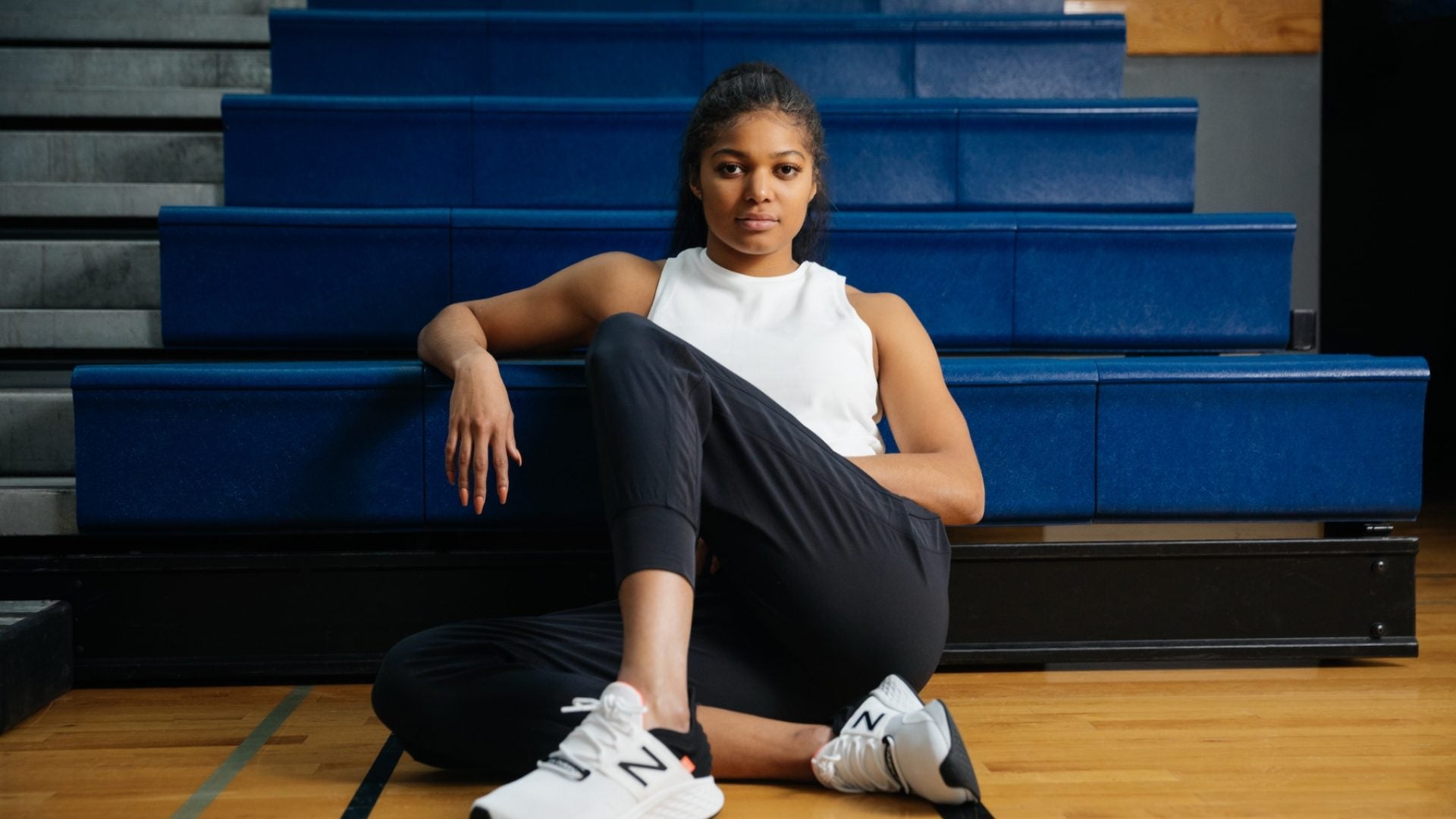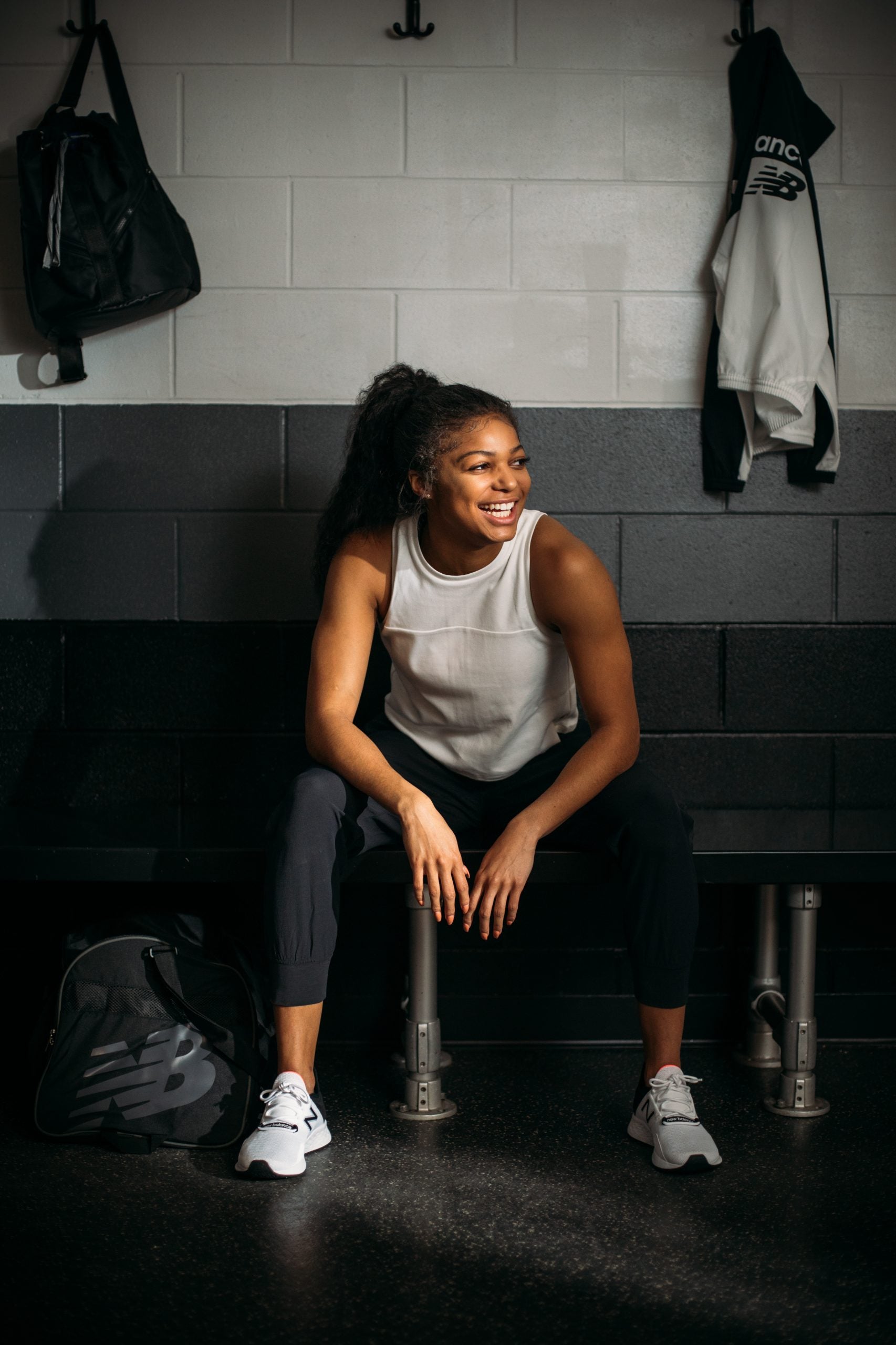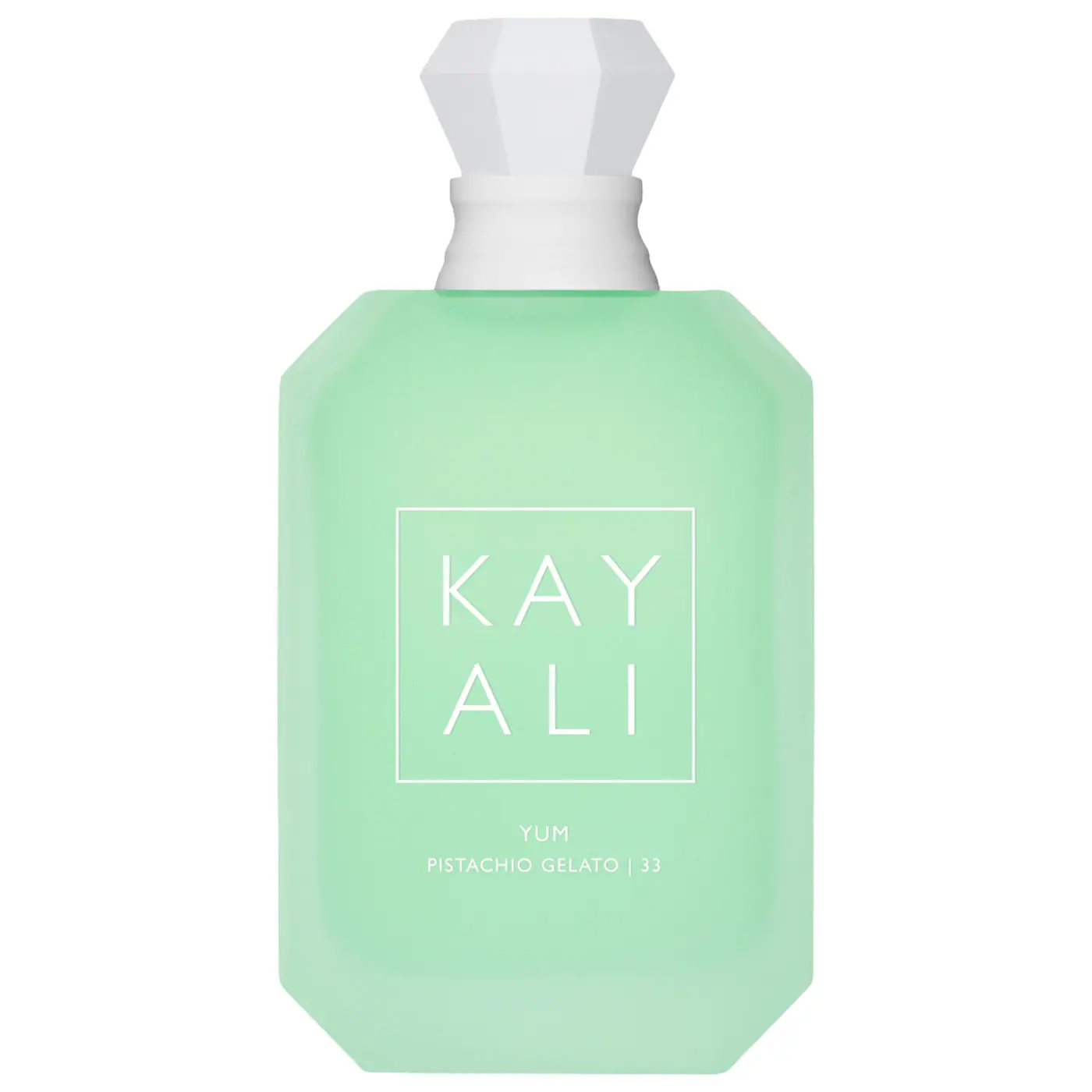
When Gabby Thomas ran the 200 meters in 21.61 seconds at the U.S. Olympic trials in June, it was the third fastest time ever. The only other person who held faster times was the late Florence Griffith-Joyner. To join the ranks of the greats, in just trials, is an amazing feat for anyone and a good sign for the upcoming Summer Games. It’s especially substantial when you consider that Thomas says running professionally wasn’t the plan she had in place for herself. She instead prioritized her education, attending Harvard, rather than going to a top-tier track and field school to propel herself in the sport.
“Going into high school, I wasn’t really thinking Olympics. And I just fell into running in college,” she tells ESSENCE. “I started taking track a little more seriously and setting goals for myself my junior year of high school, when we had a coaching switch. And then colleges started recruiting me.”
She chose Harvard, studying neurobiology and global health with the long-term goal of becoming an epidemiologist, running on the side. But her college coach, Kebba Tolbert, changed the way she saw track and field and her commitment to it. She would shift her goals, going from simply running in college to winning an NCAA championship and signing with New Balance.
“After that, all of a sudden I am going pro. So running professionally was not something that I had initially planned for myself, but I loved running and I loved what I was doing. It was going well. So it just happened,” she says. Thomas continued to change her goals and meet them. After getting her undergraduate degrees, she moved to Texas in 2019 to go to the University of Texas at Austin for graduate school, pursuing a master’s degree in public health. She also decided to train for the Olympics at the same time.
“Now that I’ve made the Olympic team, the goal is now a gold medal. So the goals just keep getting higher and higher, and I just keep walking into them. And I love it,” she says.

When asked how she balanced complicated college courses with training and competitions, she said it was easier than it sounds because she’s passionate about everything she’s doing.
“It’s a learned skill,” she says. “When I went into Harvard, I went primarily for academics. So I found the time for track and field because I love track and field. And so I also love my academics. So you just find time for things that you care about.”
“I think, even more exaggerated now, because I really love what I’m doing and I really love competing at the pro level and I was really passionate about public health. And so it’s something that I wanted to go into and that I chose to do,” she adds. “And it’s something so specialized, so it makes it even more fun to do, because it’s something that I actually care about.”
Thomas’s passion for public health increased significantly during the COVID-19 pandemic. She already wanted to diversify epidemiology to, in turn, diversify the field research that impacts communities and make the healthcare space better for all. (She plans to run a nonprofit or a hospital to ensure of that.) But the need for her to meet this goal became even clearer as COVID-19 spread and ravaged communities of color.







“That really solidified to me that I was doing what I needed to do. To have people who look like me, or just diverse people in that field, because epidemiology studies diseases and how to contain them in certain demographics,” she says. “And so there’s just so many factors that need to be considered that may not be considered if you don’t have people who care about that, who care about demographics and how to prevent diseases there or how to contain them, or how to help them. Whether it be access to healthcare, or transportation issues, or nutrition, or is it feasible for you to quarantine or not? That kind of stuff. So I think for me, it solidified my passion for it.”
The work continues towards making that specific dream a reality, as does the training necessary to win gold in Tokyo this month. But as usual, when Gabby Thomas sets a goal, she doesn’t just meet it, she exceeds it. She did just when she excelled at Harvard, when she won an NCAA Championship, and most recently, when she accomplished that head-turning time in the 200 meters at trials that put her name next to FloJo’s.
“It makes me feel very excited to go to the Olympics and compete for gold, because now I’ve set an even higher standard for myself. And that standard just continues to get higher and higher,” she says. “I’m pretty confident that, like I said, once I set my mind to do something, that I’m going to do it. So being in that conversation is just huge. And I’m excited to see what I can do.”





